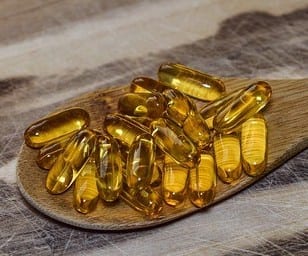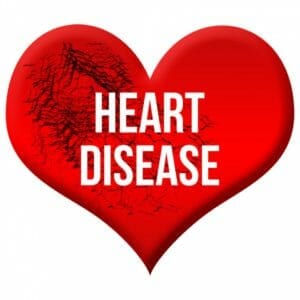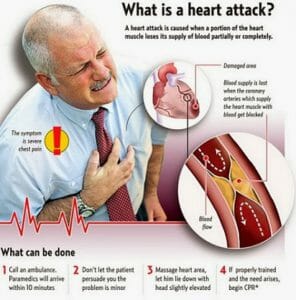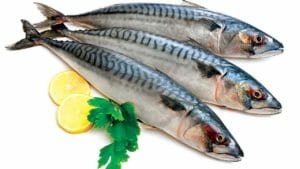
What are the best supplements for heart health?
Like it or not, heart disease is a condition that will affect many of us both men and women as we go forward in life, however, there are several things that we can do to reduce our risk of heart disease including a heart-healthy lifestyle, exercise and adding a heart health supplement to your daily diet.
There are many heart health supplements on the market but what are the best supplements for heart health and why?
 What is heart disease?
What is heart disease?
Heart disease is a word used to describe a variety of conditions that influence the heart, these conditions include:
- Coronary artery disease (blood vessel disease)
- Arrhythmias (heart rhythm issues)
- Congenital heart defects
Very often you will hear the term cardiovascular disease used in place of heart disease, cardiovascular disease refers to a condition that includes a narrowing or blockage in the blood vessels, this condition may lead to chest pain (angina) a heart attack or stroke.
Other conditions that impact the heart muscle, such as blocked valves or a change in the heart’s rhythm are included as a form of heart disease.
Studies have consistently shown that most forms of heart disease can be averted or managed by choosing a healthy lifestyle.

Heart disease symptoms
The symptoms of atherosclerotic cardiovascular heart disease may not be the same for men and women, men may be more liable to complain of chest pain whereas women may have chest discomfort along with shortness of breath, queasiness and excessive fatigue.
The main symptoms of heart disease are:
- Chest discomfort,
- Chest pain
- A heavy feeling in the chest
- Breathlessness
- Neck pain, jaw, throat back or upper abdomen pain
- Coldness or weakness in the arms, and legs due to narrow blood vessels
Should you feel that you have any of the above symptoms it is important to go to your doctor, please don’t leave it until it is too late, a heart attack can be a silent killer!
Watch for the symptoms of cardiovascular disease and talk to your doctor about them. If the cardiovascular disease is discovered in advance, then your doctor will be able to help you.
What can also help is that you consider a heart-healthier lifestyle, these are my Top 10 tips that you can do to ensure a healthier heart. It’s important to know what are the best supplements for heart health, you should consider these four supplements to help your heart health along with a balanced healthy diet and regular exercise.
Let’s go through the best supplements for heart health.
1. Nutrition and Supplements
Coenzyme Q10 (CoQ10). Coenzyme Q10 is one of the most dynamic antioxidants out there, various studies have shown Q10 to be very beneficial for heart health, it does this by preventing the bad cholesterol (LDL) from oxidation, energy and y metabolism happens in the mitochondria (in the heart cells) Coenzyme Q10 helps to boost the energy production there.
L-Arginine. L-Arginine is an amino acid produced in our bodies from the food that we eat, studies have shown that L-Arginine taken in supplement form orally improves the function of the vascular endothelial keeping the blood vessels smooth and preventing the build-up of plaque on the arterial wall.
Magnesium: A magnesium supplement is essential for those that have higher blood sugar levels and higher insulin. Insulin is produced in the pancreas; it is essential for the metabolism and growth of the body’s cells. Low magnesium levels may indicate a link to heart disease, obesity and cancer.
Nattokinase: In 1980 a Japanese scientist Dr Hiroyuki Sumi discovered quite by accident that Nattokinase could dissolve blood clots. Not only that in some follow-up studies Nattokinase was shown to dissolve surplus fibrin causing clots to dissolve and improving blood circulation.
Nattokinase was also found to reduce the bad cholesterol (LDL) and increase the good cholesterol (HDL), Nattokinase thins the blood (not to be used with blood thinners) lowers blood pressure and increases blood flow.
2. Get more fibre in your diet
Lower your risk of heart disease by eating more fibre minimum of 30 grams per day, some of the best sources of fibre include bran, oats, wholemeal bread, wholegrain cereals, jacket potatoes, and lots of fruit and vegetables.
3. Weight management
It is well established that being overweight increases the risk of heart disease, try to be disciplined with a healthy balanced diet with ample amounts of fruit and vegetables and low in sugar and fat is ideal.

4. Be more active
Physical activity is one of the best ways to reduce the risk of developing heart disease, not only that, physical exercise releases good endorphins, reduces stress and improves your mood.
Try to get outside and do a brisk walk with a friend, join a walking club or a hiking club, and aim for a minimum of 150-200 minutes of moderate activity each week, you will be amazed at the difference in how you feel.
5. Stop smoking
You don’t need me to tell you that smoking is just so bad for heart health, try to stop smoking, after all, it is one of the main reasons of coronary heart disease, and your risk of a heart attack will reduce by 50% one year after giving up smoking if that isn’t an incentive!
6. Saturated fats
Many studies have shown that eating foods high in saturated fats will elevate the cholesterol level in your blood, increased cholesterol levels lead to a corresponding increase in your risk of heart disease. Try to purchase low-fat foods and lean cuts of meat, and try to eat more fish

7. Eat more Fish
The American Heart Association has for many years recommended that people should eat more fish that are richer in unsaturated fats at a minimum of twice a week.
Unsaturated fats in fish are known as Omega-3 fatty acids, it has been established that Omega-3 fatty acids have potential benefits for heart disease by reducing the risks associated with this disease.
8. Have your 5 a day
A balanced diet must contain your 5 a day, meaning a mix of 5 portions of fruit and vegetables because of the benefits of fibre, minerals and vitamins in the fruit and vegetables. When having breakfast cereal try adding fruit or add vegetables to your favourite pasta dish.
9. Reduce your alcohol intake
We all like to relax at the weekend after working all week, a lot of us like to open a bottle of wine or a beer on a Friday evening, it’s true that alcohol is a relaxant for many people but remember alcohol contains sugar that adds the inches to your waistline!
 10. Reduce your salt intake
10. Reduce your salt intake
Mr Andre Melte and colleagues conducted a study in 49 countries of 130,000 people into the effect of too much salt in the diet on heart disease. The study concluded that by reducing the intake of salt there was a corresponding reduction in the risk of heart disease and stroke but only in patients that had hypertension, they also discovered that having too little salt in the diet could also be harmful.
I think when you are cooking that gradually adding salt and tasting is the best way to determine how much salt you need for flavour in that dish. When buying foods always check the food label for high salt and sugar levels, the recommended level of salt on any given day for adults is one teaspoon (6 gms)
 Is there mercury in fish?
Is there mercury in fish?
People ask the question because of health concerns, is there mercury in fish? well, the answer is yes fish or fish products contain different amounts of heavy metals, and one of those is mercury, certain fish contain higher amounts of mercury particularly long-lived fish such as tuna, marlin, mackerel, tilefish, shark and swordfish.
However, eating fish in moderation at least two times a week will do you more good than harm.
What are omega-3 fatty acids, and why are they good for your heart?
Omega-3 fatty acids are a type of unsaturated fatty acid that may reduce inflammation throughout the body. Inflammation in the body can damage your blood vessels and lead to heart disease and strokes.
Omega-3 fatty acids may benefit heart health by:
- Decreasing triglycerides
- Lowering blood pressure slightly
- Reducing blood clotting
- Decreasing your risk of strokes and heart failure risk
- Reducing irregular heartbeats

Fish rich in Omega 3 Fatty Acids
Eating at least two servings a week of fish, particularly fish that’s rich in omega-3 fatty acids, appears to reduce the risk of heart disease, particularly sudden cardiac death
Fish like salmon, sardines, pilchards and mackerel are rich in Omega 3 fatty acids, Omega 3 fatty acids work well in protecting our bodies from heart disease.
If you are breastfeeding or pregnant is advisable to only eat two oily fish dishes each week.
References:
https://www.ncbi.nlm.nih.gov/books/NBK218744/
https://www.ncbi.nlm.nih.gov/pubmed/17143054
https://www.ncbi.nlm.nih.gov/pmc/articles/PMC3831119/
https://www.thelancet.com/journals/lancet/article/PIIS0140-6736(18)31724-0/fulltext
Related Articles:
Get rid of high blood pressure
Best brand of fish oil supplements
Best foods to eat to lower cholesterol
Natural heart health supplements


Hi Dave,
It’s surprising what people forget about when it comes to heart health, simple things such as healthy eating and exercise. Deep vein thrombosis can be a painful condition, I believe that Nattokinase may be able to help, I take it myself every day to remove plaque build up in my arteries.I actually wrote an article on how Nattokinase can help with DVT.
Thanks for visiting
I have always wondered if supplements actually help. Now I take some to help with all round health, but you make easy to follow step by step things that will help keep a healthy heart body and mind. It will take a little but of hard work and elbow grease but it becomes achievable with your steps.
This is an excellent article on heart health. Very good advice to prevent cardiovascular disease, although some of these such as quitting smoking are so obvious that it is always surprising to me that o many people still smoke, even though it is proven to cause health issues!
I have never heard of the supplement Nattokinase. I am interested in researching this as I have had DVT recently, so a natural blood thinner may be a great supplement for me.
Dave